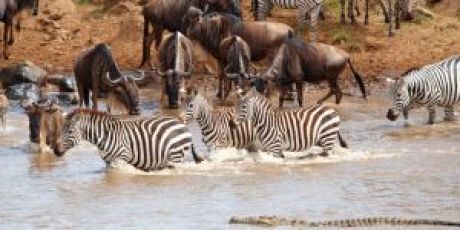STOP this TOTAL DISASTER, say Avaaz
Posted on
|
STOP THE TOTAL DISASTER There’s a new petition on the online global community Avaaz. I am asking you to PLEASE READ IT, and if you’re willing to, to SIGN IT. Either way, please, please SHARE IT. So here’s the scoop: Energy giant Total is about to build the biggest heated oil pipeline in the world. Avaaz say that the impact of this oil pipeline is three fold:
This is all done to extract 1.033.417.417.032 litres of oil, a fossil fuel – taking us closer to a climate catastrophe. Mind you, Total's CEO have publicly committed to preventing it! In Total’s Climate Report 2019 concerning climate change, it was stated “Clearly, we need to take stronger action.” Let’s have a quick look at Total and Biodiversity: Commitments and Actions “Given its business, Total sometimes works in sensitive natural environments. We are aware of the stakes involved and have taken measures to ensure that biodiversity and ecosystems are taken into account in our projects and operations.” Patrick Pouyanné, Chairman and Chief Executive Officer, Total wrote. Total’s biodiversity policy includes (and I quote): • Applying the Mitigation Hierarchy, an approach to avoid, reduce, mitigate and, if necessary, compensate any loss in biodiversity • Taking ecosystem sensitivity into account. • Managing biodiversity by integrating risks and impacts in our environmental management systems. • Reporting on biodiversity performance to stakeholders. • Working with local and international partners and our industry associations to improve Online community Avaaz are attacking the pipeline plan in three ways
Avaaz points out that this is all about fighting for what we all care about. We need to protect the precious life on earth, to stand up for basic human rights – and to protect life and biodiversity for future generations. Please let’s help communities in Uganda. Let’s help them defend their lands and the reserves the wildlife need. |
